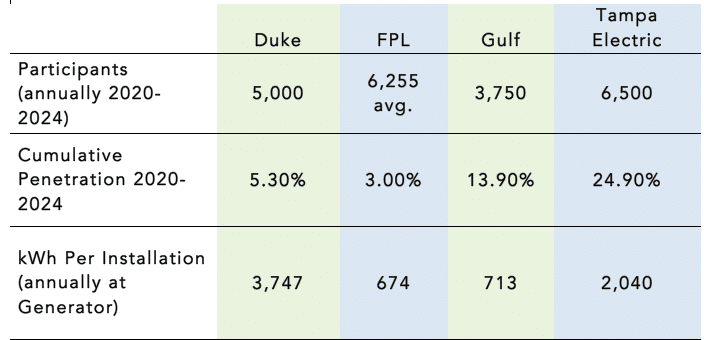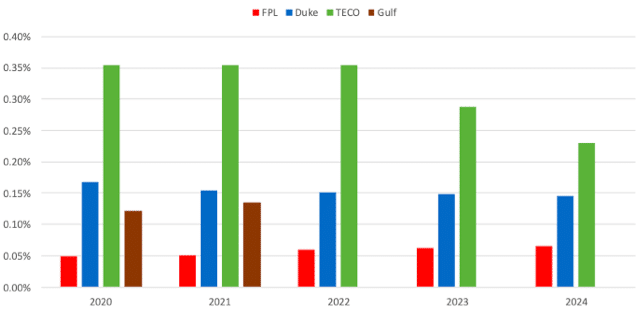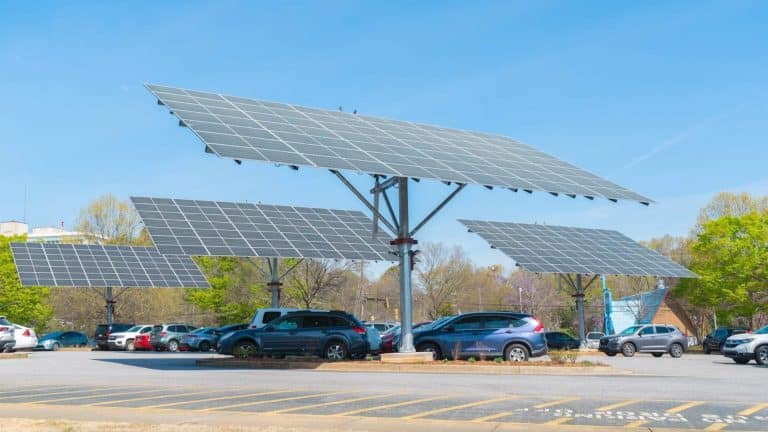Cutting energy waste and lowering energy bills has never been more important. The continuing COVID-19 crisis and economic fallout are exacerbating the problem of already-high and unaffordable energy bills and energy burden for hard-working families. Energy efficiency programs for low-income customers play a critical role in relieving energy burden for our most vulnerable neighbors while reducing carbon emissions that threaten our health and environment.
So why is the staff at the Florida Public Service Commission recommending cutting back energy efficiency programs – especially these essential low-income programs?

On July 7, the Florida Public Service Commissioners will decide whether to approve the proposed energy efficiency plans of the state’s four largest utilities; Florida Power & Light (FPL), Duke Energy Florida (DEF), Tampa Electric, and Gulf Power. The plans the utilities have submitted are intended to meet the goals set for the utilities last year through a number of new and enhanced programs.
Proposed low-income programs are an improvement, but big divide among utilities
The utilities have filed proposed low-income programs that generally surpass past efforts in meeting the critical needs of this customer segment – either by increasing savings per household, reaching more customers, or both.
As shown in the chart below, Tampa Electric will reach the most eligible customers annually through its low-income program – both in absolute numbers and relative to its size. Its program will reach almost 25% of eligible customers over a five-year period. The reach of its program is particularly impressive given that it serves seven times fewer customers than FPL.
Duke Energy Florida, while not reaching as many customers as Tampa Electric, provides the most energy savings per participants at 3,747 kilowatt-hours (kWh) per participant per year.
While Gulf Power is projecting to reach almost 14% of its eligible low-income customers, it has one of the lowest energy savings of all the utilities.
FPL has both the lowest projected reach – just 3% eligible customers over five years, and the lowest annual kWh savings for each customer it serves – a mere 674 kWh. Peer utilities have shown that it is possible to reach many more customers and provide more energy savings – and it can be done cost-effectively. Clearly, FPL can and must do better in meeting the critical needs of its low-income customers.

Overall savings
Looking beyond low-income programs, FPL does not fare any better in total projected energy savings, either. As a percentage of retail sales, it badly trails Tampa Electric, Duke, and Gulf – despite being much larger than the other power companies.

Recommendation should be denied
The staff recommendation is to maintain the programs currently in place – even if these programs are outdated and in need of replacement of enhancement. This has no basis in law or logic. Technologies change, customer needs change – so too should the programs.
If the Florida Public Service Commission (PSC) adopts its staff’s recommendation, thousands of Florida families will miss out on efficiency measures that make their homes more comfortable, safe, and secure. The Commission should reject the recommendation to scale back programs.
The staff recommendation also adds a new twist to future energy efficiency policy in Florida by requesting rulemaking to “explore potential revisions that would consolidate the Goal Setting and the DSM [Demand Side Management] Plan approval process.”
Judging by the arguments staff used in its recommendation to the Commission, such a rule change could very well drive down customer access to bill-lowering efficiency programs in the future and undermine utilities like Tampa Electric and DEF who strive to do more than the bare minimum.
While PSC staff correctly points to the “tension” that has surrounded Florida’s energy efficiency proceedings for years, they make no mention of the serious flaws that cause Florida to consistently rank among the worst on efficiency performance in the nation. SACE strongly believes that changes are needed in how energy efficiency decisions are made at the Commission, but those changes must first and foremost address the root causes of this problem.
Have your voice heard
Have your voice heard at the Commission by requesting that it reject its staff’s recommendation. Email the Commission at clerk@psc.state.fl.us, and include these docket numbers in the email subject line: Docket Nos. 20200053, 20200054, 20200055, and 20200056.
As always, SACE will keep you updated on the outcome in these dockets and on energy efficiency policy developments in Florida.



